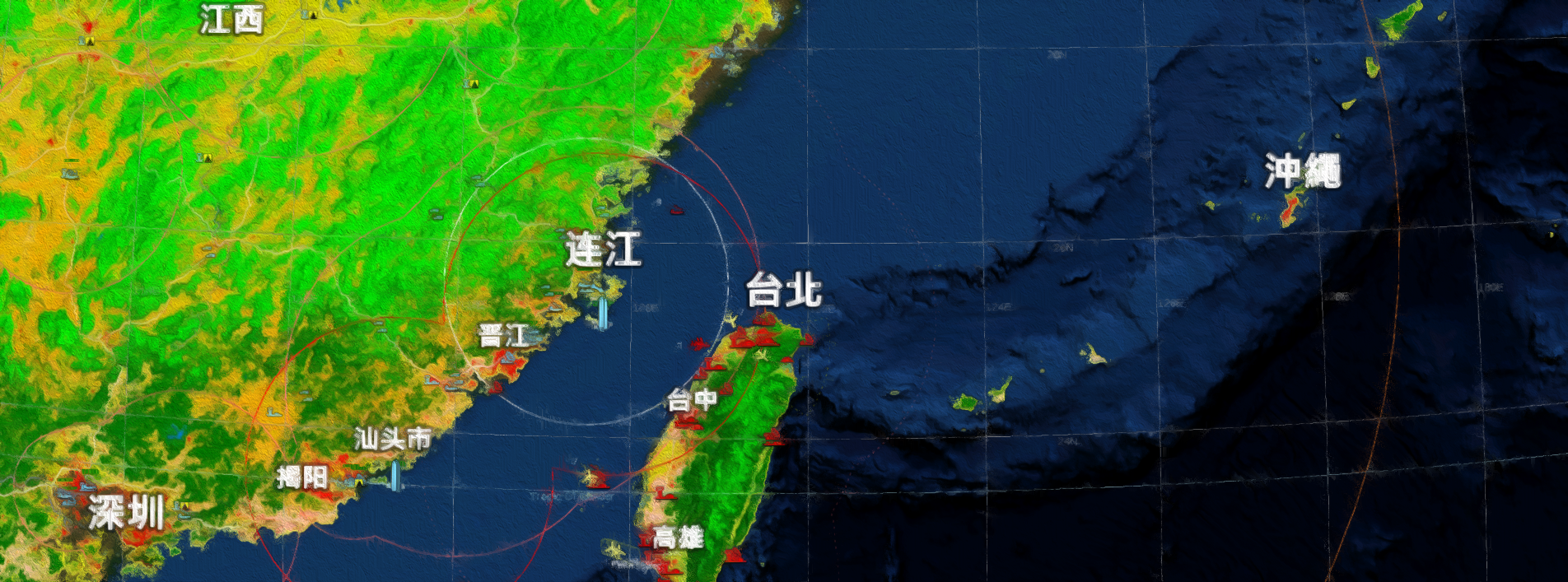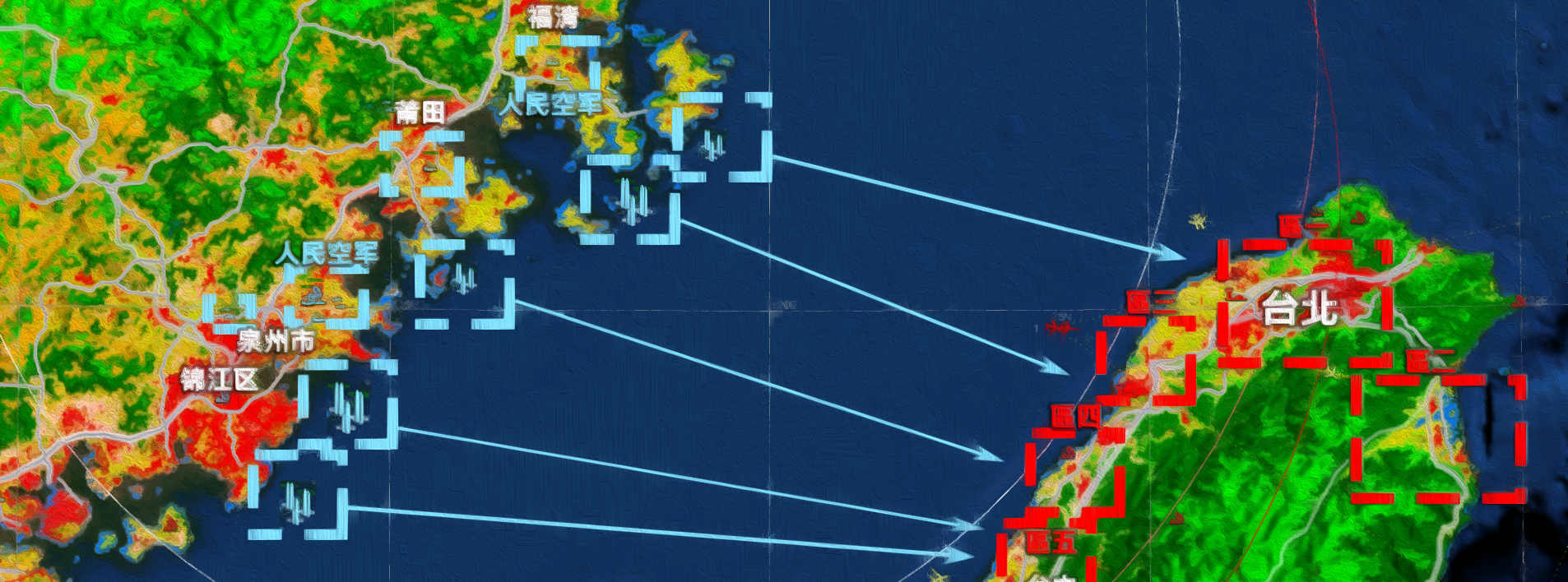MND | Beijing
1852R (PST) hours 6 June 2028CE

“Attention!” says a leader.
Everyone salutes, all in synchronous, all as one, a hive mind of collective intent, now a force so powerful that it has the world’s previously preeminent power running for cover.
That is the attitude here.
One of jubile, though none of the leaders dare to appear too joyous, as their daring battle is still in the opening phases. Twelve days since the first shots were fired—at least physical ones—the party leadership is left in awe at their success, so much in fact that one of them leans forward in the giant auditorium and says,
“Are we sure of their positions?”
“Yes, sir.” says another leader. “These are accurate as of one hour ago.”
The other generals look at him, each as equally unsure though none will admit. That would be treasonous, of course, so instead they gather in their collective, raise their shoulders, and press forward with the briefing.
Members of the State Council are present now, their joint appearance as telling as any other milestone achieved by the People’s Republic. They draw the focus of the room, their applause growing in both frequency and amplitude during the quick introduction of each head. Behind them on a large screen covering a huge wall, they see a theater map of their unit positions.
“It’s time,” they say, “it’s time to commit.”
And they open up the floor for debate. Generals and state heads propose their plans, giving their speeches, riling their support. Still, the nervous angst looms around them, the grand lights of Beijing occasionally spritzing or flaking out completely in the first hours they convene.
Premier Yei Feishung stands, displeased at the timidity.
“Ladies and gentlemen,” he says, leaning into his microphone, his old hands tightly gripping his tablet computer, “I will stop everyone there!”
And there is silence.
He continues, “We have opened the floor for collective debate and strategy, however our time is obviously limited. At this moment,” he motions to a large screen running live reels from American news channels, “we have to assume that our enemy is actively planning to assault the homeland. Not because of a ‘mistake’ or ‘miscalculation’, but because for the first time since 1814, or 2001, they have learned that their homeland is no longer invulnerable to attack. That was the exact purpose of Operation Spearhead, to embattle them internally while we commit!”
A high ranking officer stands, “Sir—”
“There is no other option now!” the Premier cuts him off. “I have to personally carry this message to the President! I expect this message and the People’s Party to be ready and prepared to finish this job!”
They all reply, “Yes, sir.”
“So,” his tone softens, “we all agree that the goal is to make this as temporary as possible?”

“Yes, sir.” says a general, using gestures to spin and zoom into various aspects of a digital map. “As mentioned before, Operation Spearhead was more successful than originally intended, much to the gratitude of the People’s Liberation Armed Forces. We have obviously taken them by huge surprise, however due to their lack of heavy defenses on their western coast, the civilian casualties were far higher than originally planned.”
“I understand that this creates its own difficulties.”
“Sir,” the man bows momentarily, “if I may be honest, this situation—” he almost says ‘worries’ him, “—makes our position of battle superiority more challenging. The American political system is at best an archaic relic. Everyone in this room has seen the polarity in their system, the ‘handicaps’ of their many rules and balances. We forecasted that they would be hesitant to officially declare war. Their president has limited war authorization—”
“—Tell that to Iraq and Afghanistan.” muses the Premier.
“—Of course, sir.” the general continues. “A conflict with us is far more serious. They share no outright superiority over our forces anymore. Just watch their news. Their own government officials don’t want war, nevertheless a war with China. Now that we’ve exchanged blows, the Americans know that this may prove to be too costly to wage. That was the design intent of Operation Spearhead, however, I must advise that with the higher-than-expected civilian casualties in mainland America, their demeanor is changing.”
“Do you think they’ll do it?”
“Declare an official war, sir?”
“Yes.”
The general turns to the big screen on the wall, watching replaying footage of collapsed bridges, skyscrapers falling in San Diego, Las Vegas on fire, children being carried out from rubble in body bags, the cameras zooming in on sobbing mothers.
CNN has a live ticker estimating over 19,000 casualties.
Fox News’ equivalent mentions 20,121.
The PLAN estimated no more than 3,500 considering their targets in military and naval bases on the coastlines. But then it escalated, and as the naval battles all across the Pacific intensified, so came the orders from MND to expand their targeting.
So they did.
And with longer ranged targeting came vastly magnified inaccuracy, their Russian-bought Zircon strike missiles sometimes missing their targets by miles. But the Americans shared blame, their advanced electronic warfare systems jamming and spoofing each missile’s guidance computer, sending hypersonic weapons aimed for Nellis Air Force Base flying into Las Vegas casinos at Mach 5.
And the result? The first apparent bipartisan action in decades, the American senators walking hand in hand, side by side up the stairs to their now locked down Capitol, vowing to enact revenge.
So, yes, they had the advantage. But for how long?
Knowing time was limited, the party did exactly what it had planned to do for over sixty years. China was a pushover before, used to taking provocations like the Belgrade embassy bombing, or the Hainan Island incident on the chin. It watched rather helplessly as the Americans sailed their carrier strike group through the Strait in 1996, clearly unable to do anything about it.
But those times had come and gone.
There is nationalism now, a truly careful study of the way America waged war, all combined into doctrines that punched large holes in every domain they held dear. There is no more pushover, and the party members know this. They can’t back down, even if they are unsure of who fired the first real shots.
So in these tense few seconds that everyone measured their response to the Premier, tension builds between the loyalty to their party, their nation, and their duties to the truth.
This is the conflict that both no one and everyone wanted, and now they have to see it through.
After explanation, the Premier understands this.
“They face the same pressures we do.” says the general. “And in that, I believe we must move now before they regroup.”
Irked, the Premier scoffs, “I recall a discussion weeks ago recommending we hold off the American mainland strikes! I was told that we still had the advantage! We were operating under that pretense, and that, from my understanding, is what has driven the success so far.”
“Yes, sir, but they postured and pulled their carriers away as we staged. It was impossible to blind their satellites without opening hostilities.”
“And once there were hostilities, the mainland strikes were necessary to keep them from coming back.” says another general. “Which they will do, please understand, sir. Do not doubt it. We only delayed their return. In a few weeks time, we will see their carriers steaming westward and their aircraft flying long sorties as well.”
“Can we take down their carriers?”
“That is our utmost goal.”
The Premier thinks, “Do we need to in order to take Taiwan?”
“At this time, no sir.”
“And we are 100% staged?”
The generals each smile, checking with each other before one of them says, “Yes, sir. We are.”
Then after some thought, the Premier says, “We should press forward with the invasion. I will run these plans and options by the president. I assume he will think the same.”
They salute as the State Council stands to leave, each one of them turning like robots. Rehearsed and acted thousands of times, but never under these circumstances.
China, after an entire century of humiliation, was fighting the most powerful country in the world—and winning.
Smirks, laughs, nods, and confidence prevail, but as the last high rank official leaves, it all seems to waft away. There is nervous air in the room, the honest portion of their oaths showing as each military leader stares down one of the biggest crises to ever face the Communist Party.
Its existence hangs in the balance.
And in its way stands an angry United States.
So on June 8th, it began:
The official Invasion of Taiwan.

This is a work of fiction. All characters, organizations, and events portrayed in this novel are creations stemming from the author’s imagination. Any events and locations are used fictitiously.
Copyright © 2021 D. R. Super
—
Artwork developed and flown in DCS World, and stylized by me
Tac Maps are created by me in CMANO – Edited in Photoshop © Matrix Games

Facebook Comments